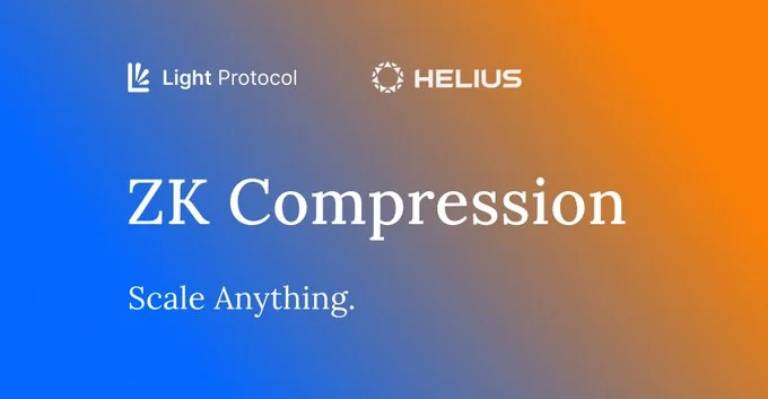TL;DR
- Solana introduces ZK Compression to reduce costs and improve scalability.
- The technology uses zero-knowledge proofs to maintain data integrity.
- The community debates whether this tool works as a layer 2 (L2) solution.
Solana (SOL) has taken a significant step into the blockchain technology space with the introduction of ZK Compression, an innovative feature aimed at transforming the efficiency and scalability of on-chain applications.
This advancement, developed in collaboration with Light Protocol and Helius Labs, promises to dramatically reduce the costs associated with token and account creation by compressing the on-chain state, a process that uses zero-knowledge proofs (ZK proofs) to maintain integrity of the data.
This is the one chart you need to see today: ZK Compression brings the cost of state down to scale anything. https://t.co/oKS9XZI8Wc pic.twitter.com/yp2EBFta9X
— Solana (@solana) June 21, 2024
ZK Compression stores only the state roots on-chain, while the rest of the data is kept on the Solana ledger, thus minimizing storage overhead on the blockchain.
This approach allows developers to significantly reduce costs without compromising security or network performance.
Mert Mumtaz, CEO of Helius, highlighted that this technology allows scale improvements of up to 10,000 times, bringing Solana closer to creating a global, fast-synchronizing state machine.
From a strategic perspective, Austin Federa, head of strategy at Solana, noted that this solution addresses the problem of high on-chain account storage costs, making it easier for more companies to develop products on the chain.
According to Federa, ZK Compression solves a major pain point for consumer and institutional applications.
However, the implementation of this technology has generated debate within the crypto community.
Some members, such as Adam Cochran, argue that ZK Compression works similarly to a Layer 2 (L2) solution.
Cochran suggests that Solana developers will eventually recognize that they have created an effective L2 tool and that transparency about its nature is essential.
Likewise, Ethereum investor Ryan Berckmans praised the L2 model, suggesting that Solana‘s new feature fits perfectly within this scheme.
A Covert Layer 2 Solution in Solana?
Anatoly Yakovenko, co-founder of Solana, responded to these opinions by clarifying that, although ZK Compression acts as an L2 solution, it avoids many of the common problems of traditional L2s.
Yakovenko explained that this tool does not require a multisig security board, changing chain IDs, a governance token, or an external sequencer, and still allows Solana validators to receive all transaction fees.
This distinction is crucial to understanding how ZK Compression could be integrated without the typical L2 drawbacks, providing an efficient and cost-effective solution without compromising network integrity.
The ability to store only state roots on-chain and keep other data on the ledger significantly reduces storage costs, which can drive adoption and development of new applications on Solana.
The impact of ZK Compression on scalability and cost reduction cannot be underestimated.
By providing a solution that addresses critical problems in creating and managing on-chain applications, Solana reaffirms its commitment to the innovation and continuous improvement of blockchain technology.
As the crypto space evolves, tools like ZK Compression will be instrumental in fostering mass adoption and development of decentralized applications and digital assets.


